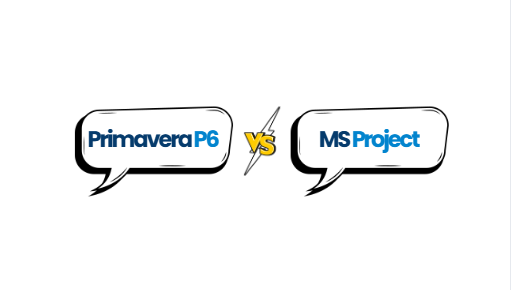
What is Ethical Hacking: Top Ethical Hacking tools in 2023
In the digital age, cybersecurity has become paramount. Ethical hacking, also known as penetration testing or white-hat hacking, is a vital practice that safeguards organizations from cyber threats. In this in-depth guide, we will demystify ethical hacking and explore the top tools that ethical hackers use in 2023. At OptionTrain College, we recognize the importance of ethical hacking skills and offer comprehensive training programs to help you become proficient in this field.
Understanding Ethical Hacking:
Ethical hacking is the practice of deliberately probing computer systems, networks, and applications for vulnerabilities. The objective is to identify and rectify security weaknesses before malicious hackers can exploit them. Ethical hackers operate with the consent of the organization and adhere to a strict code of ethics.
Key aspects of ethical hacking include:
Authorized Access: Ethical hackers perform their activities with explicit permission from the owner or administrator of the targeted systems or networks. This ensures that they are not engaged in illegal or unauthorized activities.
Legality and Ethics: Ethical hackers operate within the boundaries of legal and ethical standards. They adhere to established guidelines and laws to maintain the integrity of their actions.
Goal-Oriented Testing: Ethical hacking aims to assess the security posture of an organization or system, identify vulnerabilities, and provide recommendations for mitigating risks. The primary goal is to improve security rather than exploit weaknesses maliciously.
Methodical Approach: Ethical hackers use a systematic and methodical approach to simulate real-world cyberattacks. They employ various tools and techniques to uncover vulnerabilities, such as penetration testing, vulnerability scanning, and code review.
Reporting and Remediation: Ethical hackers document their findings and provide detailed reports to the organization. These reports highlight vulnerabilities and suggest remediation steps to address identified issues.
Continuous Improvement: Ethical hacking is an ongoing process. Organizations often engage ethical hackers regularly to assess and improve their security posture in response to evolving threats and changes in technology.
Unlock the World of Connectivity with Our Diploma in Network Support Specialist Course at Optiontrain.com
Roles and responsibilities of ethical hackers include:
Identifying and analyzing vulnerabilities in software, hardware, and network configurations.
Conducting security assessments, including penetration testing and vulnerability assessments.
Employing social engineering techniques to test the human factor in security.
Evaluating the effectiveness of security controls, such as firewalls, intrusion detection systems, and encryption.
Providing recommendations for security improvements and best practices.
Assisting organizations in responding to and mitigating security incidents.
Ethical hacking plays a crucial role in enhancing cybersecurity by proactively identifying weaknesses before malicious hackers can exploit them. Organizations across various industries, including government agencies, financial institutions, and technology companies, rely on ethical hackers to assess their security defenses and protect sensitive data from cyber threats.
In 2023, the field of ethical hacking continues to evolve with a wide array of powerful tools that security professionals use to identify vulnerabilities and protect systems from cyber threats. Here, we'll delve into some of the top ethical hacking tools you can expect to see in 2023:
1) Nmap (Network Mapper):
Purpose: Network scanning and discovery.
Description: Nmap is a versatile and essential tool for ethical hackers. It helps scan networks, identify open ports, detect services running on those ports, and gather valuable information about network hosts.
2) Wireshark:
Purpose: Network protocol analysis.
Description: Wireshark is a packet analyzer that allows ethical hackers to capture and inspect data traveling across a network. It's invaluable for diagnosing network issues and identifying security vulnerabilities.
3) Metasploit:
Purpose: Exploitation and penetration testing.
Description: Metasploit is a widely used framework for finding, exploiting, and validating vulnerabilities in systems. It provides a vast collection of exploits, payloads, and auxiliary modules for comprehensive testing.
4) Burp Suite:
Purpose: Web application security testing.
Description: Burp Suite is a comprehensive tool for web application security assessment. It includes features for scanning, crawling, and manipulating web applications, making it an essential choice for web-focused ethical hackers.
5) OWASP ZAP (Zed Attack Proxy):
Purpose: Automated web application security testing.
Description: ZAP is an open-source tool designed for finding vulnerabilities in web applications. It helps detect and mitigate common web-related security issues, such as cross-site scripting (XSS) and SQL injection.
6) Aircrack-ng:
Purpose: Wireless network security assessment.
Description: Aircrack-ng is a suite of tools for auditing wireless networks. It's used for assessing Wi-Fi security, capturing packets, and performing various attacks to test the integrity of wireless networks.
Network support specialists: Where connectivity, security, and success intersect.
7) John the Ripper:
Purpose: Password cracking.
Description: John the Ripper is a widely recognized password cracking tool. It can be used to test password strength, recover forgotten passwords, and assess the security of hashed credentials.
8) Hydra:
Purpose: Password brute-force and dictionary attacks.
Description: Hydra is a versatile tool for performing password attacks against various services, including SSH, FTP, HTTP, and more. It supports both brute-force and dictionary-based methods.
9) Nikto:
Purpose: Web server and web application vulnerability scanner.
Description: Nikto is a command-line tool that scans web servers for known vulnerabilities, misconfigurations, and security issues. It's particularly useful for quickly identifying potential weaknesses in web applications.
10) Snort:
Purpose: Network intrusion detection and prevention.
Description: Snort is an open-source intrusion detection system (IDS) that analyzes network traffic in real-time to detect and respond to suspicious activities. Ethical hackers use it to monitor network security and identify potential threats.
11) Ghidra:
Purpose: Reverse engineering and malware analysis.
Description: Ghidra is a powerful open-source tool developed by the NSA for analyzing binary files. It assists in reverse engineering, decompiling, and understanding the inner workings of software, making it valuable for security professionals examining malware.
12) Social-Engineer Toolkit (SET):
Purpose: Social engineering attacks and awareness testing.
Description: SET is a framework designed for testing and raising awareness of social engineering risks. It helps ethical hackers simulate phishing, credential theft, and other social engineering attacks to assess an organization's security posture.
13) Hashcat:
Purpose: Password cracking.
Description: Hashcat is a high-speed password recovery tool that supports various algorithms and attack modes. It's known for its efficiency in cracking hashed passwords, making it valuable for security assessments.
14) SQLMap:
Purpose: Automated SQL injection and database exploitation.
Description: SQLMap is a specialized tool for detecting and exploiting SQL injection vulnerabilities in web applications and databases. It automates the process of identifying and extracting data from vulnerable databases.
15) Kali Linux:
Purpose: Penetration testing and ethical hacking platform.
Description: Kali Linux is a Debian-based Linux distribution designed for ethical hacking, penetration testing, and digital forensics. It comes pre-installed with numerous security tools and is a popular choice among ethical hackers.
At OptionTrain College, we offer comprehensive ethical hacking training programs designed to equip you with the skills needed to excel in this exciting and vital field. Ethical hackers play a crucial role in safeguarding digital assets and protecting organizations from cyber threats. Whether you're just starting or seeking to advance your cybersecurity career, ethical hacking offers a rewarding and impactful path.
Empower Your Skills with our Diploma in Network Support Specialist Course at Optiontrain.com
Suggested blogs
Recent blogs


15 April 2025
|